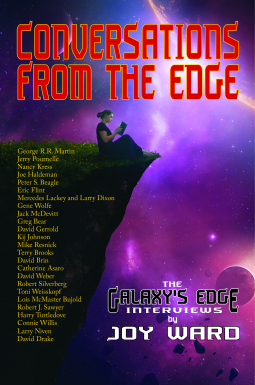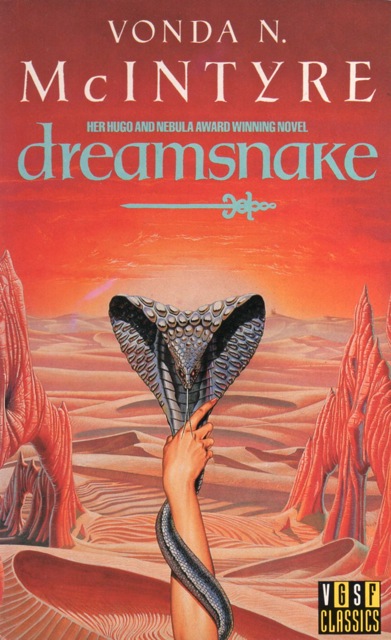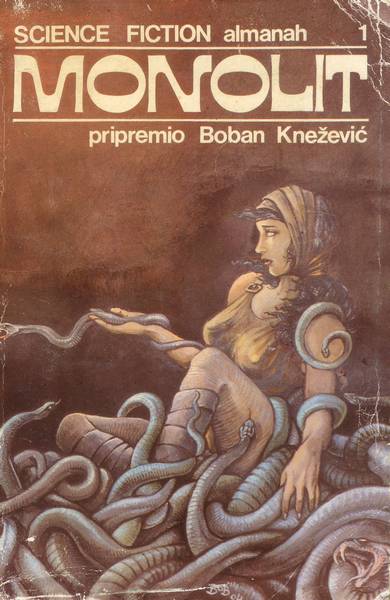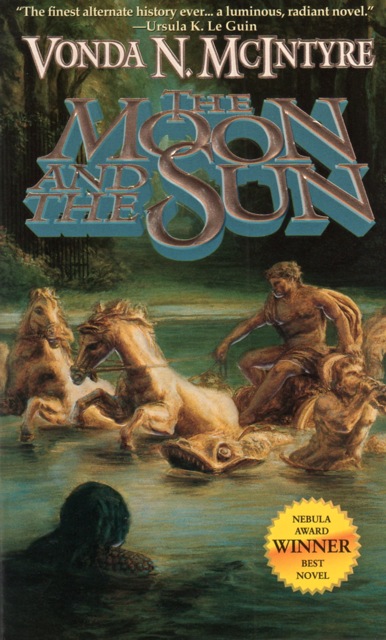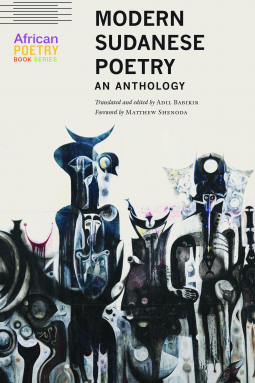Isis Orb
by Piers Anthony
Open Road Integrated Media
Sci Fi & Fantasy
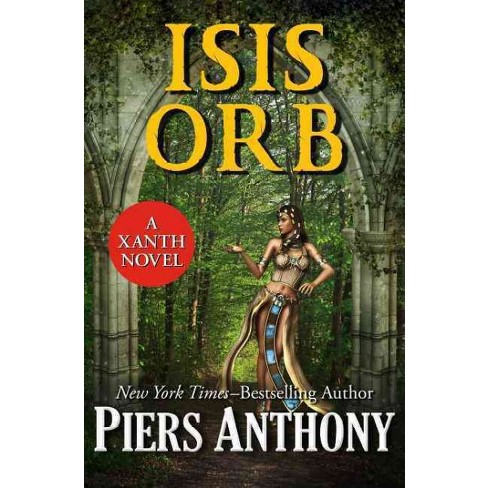 A few complain about the works of Piers Anthony, but he'd sold so many, could his books be as bad as they claimed? Moreover, he's won the British Fantasy award and was nominated four times for the Hugo and Nebula awards, and twenty times for Balrog, Ditmar, Gandalf, Locus awards. Maybe the awards mean little, but even as recent as 2011. his Xanth series appeared on NPR's Listener Picks for Top 100 Science-Fiction, Fantasy Books. Granted it was #98, but the whole list is packed with classics. So what's going on?
A few complain about the works of Piers Anthony, but he'd sold so many, could his books be as bad as they claimed? Moreover, he's won the British Fantasy award and was nominated four times for the Hugo and Nebula awards, and twenty times for Balrog, Ditmar, Gandalf, Locus awards. Maybe the awards mean little, but even as recent as 2011. his Xanth series appeared on NPR's Listener Picks for Top 100 Science-Fiction, Fantasy Books. Granted it was #98, but the whole list is packed with classics. So what's going on?I decided to read for myself.
This whole series is a pun-fest. The book titles give the series game away: Centaur Aisle, Night Mare, Heaven Cent, Air Apparent, Knot Gneiss, Well-Tempered Clavicle, and Board Stiff. If you hate puns, then steer clear, but "Dad jokes" are notorious for them, so if you can accept Dad jokes, you can accept these. "But not in serious fiction!" someone might say. True, this is not intended to be serious fiction although they can and do serve a serious, underlying intent:
Set up: Hapless, a young man who has no direction in life and feels he has no worthwhile talent, is visited by the gnome, Humfrey the Good Magician, who wants to send Hapless on a quest.
Hapless sputtered. "It's a trite formula! Some oaf comes with a stupid Question, gets a stupider Answer, then has to serve some complicated quest that completely messes up his life. Why should I get into anything like that? My life is already frustrating enough."
"Because formulas exist for an excellent reason: they work. You have no life to speak of; only by following this formula will you achieve your three life ambitions."
"What ambitions? I have no idea what I want."
"That is part of your problem. You want to play a musical instrument well, to have a good girlfriend, and to make a difference in Xanth. You will achieve all three only by taking a Quest."
Hapless opened his mouth to protest, then stalled. Because the moment the Good Magician spelled out what he wanted, he saw that it was true. It wasn't magic to make him desire things he hadn't before; it was a clarification of desires he had always had but had never been able to recognize. Humfrey had his number.
Still, he protested. "My talent is to conjure any musical instrument. But it's no good, because I can't play any instrument. No girl is interested in me because I don't have a useful talent. And as for making a difference, I have no idea how."
"Precisely. Your Quest will gradually clarify those aspects, so that by the time it concludes you will have succeeded in accomplishing all three."Hapless takes on the quest and meets companions who have different abilities. The first is in a photograph that he supposed to think outside of. It speaks to him. She is Cylla Cybin (pun for psilocybin, the psychedelic compound in mushrooms) and can create hallucinations.
They encountered a man going the other way. "Hi!" he said.
"Lo," Cylla replied. "What's your talent?"
"To carve air into a solid mass. Like this." He moved his hands as if slicing something invisible, then held them forth as if presenting something.
Curious, Hapless put his hands out. There was a block of solid air, invisible but definitely there. "Nice," he said, impressed.
"We're moving on," Cylla said abruptly.
Hapless returned the block of air and ran to catch up with her. "Why did you go? It's a perfectly respectable talent."
"He's an airhead."
Was that a pun? It certainly did not seem fair. Hapless decided not to challenge it.
They crossed a meadow filled with flowers. Bees were servicing them. But one bee flew directly toward the two of them.
"Get away!" Cylla cried, batting at it. Discouraged, the bee departed.
"Why did you do that?" Hapless asked. "It wasn't threatening us."
"It was a Wanna Bee. Anyone stung by one of those wants to be something else."
Oh. She evidently knew her local wildlife.Another companion transforms a cat. Together they have to solve puzzles to find who they are on Xanth.
This is a light and charming look at the coming of age of your average kid--not the superstar quarterback, not the softball no-hit pitcher or the prom queen, not the brainiac nerd who always has his hand raised. SF commonly mines the uncommon man, but what about the common man? What place does he serve in society? Do he have utility?
So, Piers says, we all have intrinsic value. He's going to show us how. Hapless has three goals:
"You want to play a musical instrument well, to have a good girlfriend, and to make a difference in Xanth."Hapless wants to 1) be gainfully employed, 2) find love, and 3) feel like he's of value to his society. What human being doesn't share those goals? I'm sure there are some, but they'd have to be rare.
Note, too, that these goals and concerns (and puns), probably aim for a target audience of 13-19, but if you can remember some of the difficulties of that era (or maybe you're still struggling to find yourself, no shame), and can enjoy the coming of age story, then it might work for you as well.
Another aspect that other reviewers have skimped on, which you can discern in these excerpts, is the setting. The setting is thin. Anthony's focus is on character, witty banter, and word play (much of the magic of Xanth springs from multiple definitions of words). If you want a rich, detailed setting, Anthony will not be the writer for you, but apparently he's still huge among his legions of fans, so that is not an issue for some.
Note that Hapless's second goal is to find love. Anthony does expend a lot of energy on sexual interest. I read a review that called him sexist because of it. The way one's sexual interest runs is not sexist. In fact, Anthony's Hapless considers the sexes equal and is trained by the female characters on how to view women, which is to see them as more than sexual objects--an attitude which I suspect would have wide-spread approval among most of the population. Nonetheless, someone will find something sexist somewhere because it's cool to find others lacking our moral superiority and try to ruin their lives economically.
The novel spends a great deal of energy on sexuality, so if that's not your cup of grog, this will not be the book for you.
The novel's tone is, as I said earlier, light and charming. How he portrayed what is needed to mature in society also fascinated me since good readers are curious to observe how minds differ from their own. If we had to agree on everything, what a boring monoculture we would be, devoid of intellectual diversity and doomed to bottleneck and die. Hopefully, we the people are willing to live and let live.


